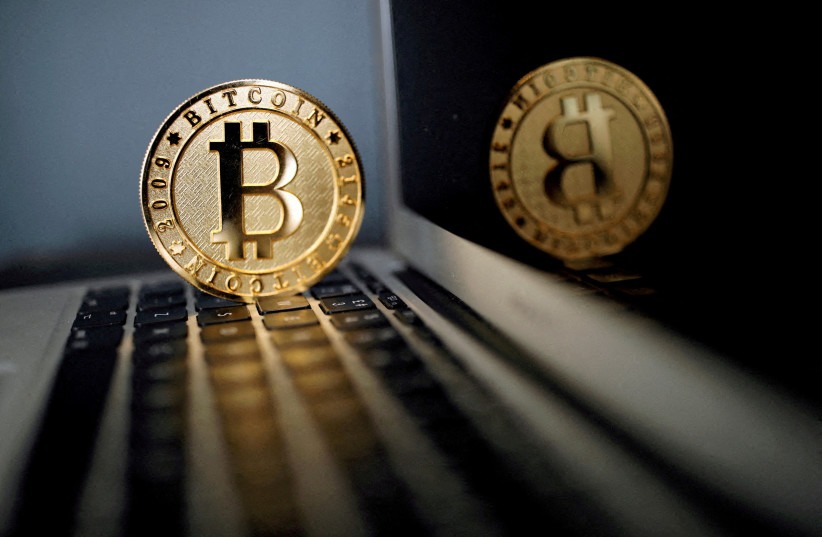After weeks of steadily rising prices, the notoriously volatile crypto industry appears to be stampeding towards a long-awaited “bull run.” Bitcoin, the original cryptocurrency, leads the pack and recently eclipsed its all-time high as it crossed the $70,000 threshold.
Crypto enthusiasts, sometimes referred to as “HODLers,” are rejoicing in the industry’s recent achievements. And while a lot of the credit goes to the US Security and Exchange Commission’s approval of several spot bitcoin ETFs back in January, the renewed sense of optimism has been driven by the structural changes it has undergone over the last year or so.
Following a series of high-profile crypto exchange collapses in 2022, common sentiment both within and outside the industry pointed to a flawed model akin to a house of cards. While crypto and blockchain have always been innovative technological feats, the previous crypto bull market was weighed down by a few too many projects that were more hype than anything else.
Routine criticisms of the industry ranged from it being too scammy and lacking real-world utility to employing questionable business models and poor risk management. Shallow marketing schemes centered around NFT projects and hyperbolic messaging paired with all the various scandals combined to poison the industry’s reputation—all of which contributed to a brutal “crypto winter.”

However, they say a down market is a great time for innovators to regroup and build the next wave of revolutionary technology outside of the limelight. Tel Aviv-based Kima epitomizes this. Founded in 2021, Kima is an asset-agnostic, decentralized settlement protocol that addresses the challenges of fragmentation between blockchain networks and traditional finance. Essentially, Kima aims to solve blockchain’s interoperability problem.
What exactly does all this mean?
Since each blockchain acts as its own isolated network, sending and receiving funds or data between two disparate networks requires a cross-chain mechanism such as a bridge, sidechain, or protocol. While these mechanisms help, they rely on smart contracts, which on one hand are a revolutionary achievement in blockchain technology, but also come with distinct security flaws. In fact, hackers stole over $60 billion from smart contracts in 2023 alone.
Also, these cross-chain mechanisms only facilitate bilateral transactions between blockchains, which further complicates an already frustrating user experience. Imagine trying to communicate using email when your Gmail only lets you send mail to Hotmail and other Gmail accounts.
With Kima’s protocol, users benefit from multilateral integrations that can include all blockchains, not to mention traditional financial systems like credit cards and bank accounts.
Kima’s peer-to-peer payment and transfer protocol works essentially the same way PayBox or Square does. However, it introduces a vastly more complex infrastructure capable of fostering inter-ecosystem financial activity without intermediaries, such as banks or smart contracts. This means users can directly connect their checking account to a decentralized exchange and purchase Ethereum.
As the foundation of its value proposition, Kima’s settlement layer makes this possible and is designed to handle an endless number of applications. Whether cross-border money transfers, eCommerce, borrowing and lending, gaming, NFT marketplaces, wallets, and decentralized exchanges, Kima ensures the funds are sent in a secure, compliant, and efficient manner.
After its veteran leadership spent a couple of years experimenting with how to facilitate blockchain interoperability, Kima launched its software development kit (SDK) last year. The SDK empowers developers of decentralized finance (DeFi) protocols and apps, traditional apps, and fintech companies to help elevate cross-network functionality through its unified financial settlement layer.
This layer enables financial institutions like banks and brokerage firms to easily interact with crypto services without intermediaries.
Fostering innovation across the digital and financial landscape
By removing the barriers between blockchains as well as between crypto and fiat currencies, Kima isn’t just facilitating unprecedented levels of efficiency and security but also fostering innovation across the digital and traditional financial landscape. DeFi’s technological capabilities and its community-driven approach to governance have reinvigorated the broader crypto and blockchain ecosystem with innovative mechanisms such as tokenized real-world assets.
Bolstering Kima’s offering is its acceptance into Mastercard’s accelerator, FinSec Innovation Lab, which supports innovative projects conducting research and development in financial technology and cybersecurity. Kima’s partnership with FinSec has provided it with the resources to fulfill its ambitious vision by conducting research into our ever-evolving financial system while expanding and enhancing its own offerings.
As the crypto and blockchain industry demonstrates maturity and proves its long-term sustainability, the goal and vision of mainstream adoption is once again front and center. With traditional financial institutions, once diametrically opposed to crypto, highly interested in blockchain and DeFi, mainstream adoption seems more in reach than ever, and Kima is well positioned to facilitate the growing demand.
